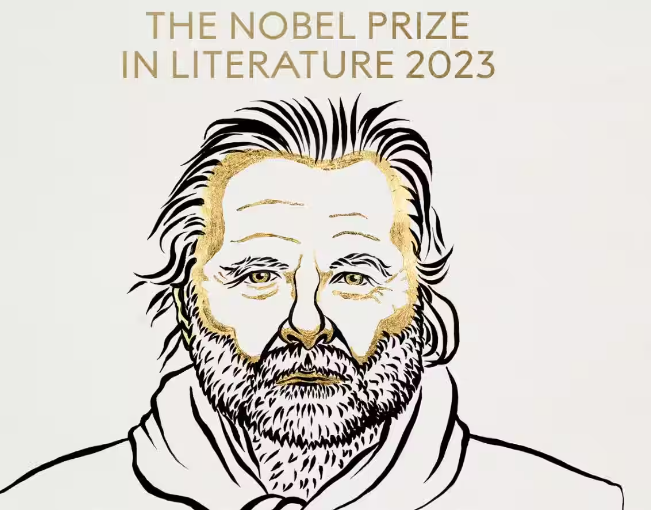Virendra Pandit
New Delhi: Norwegian novelist and dramatist Jon Fosse has been awarded the Nobel Prize in Literature for the year 2023, “for his innovative plays and prose which give voice to the unsayable,” the Swedish Academy announced on Thursday.
Fosse’s body of work, written in Norwegian Nynorsk, included several plays, novels, poetry collections, essays, children’s books, and translations, the media reported.
The Prize is worth 10 million Swedish krona (USD 915,000).
While Fosse is now one of the most widely performed playwrights in the world, he has also become increasingly recognized for his prose, the Academy said.
Among the other likely authors to win the Prize speculated upon this year were Chinese fiction writer Can Xue, Kenyan writer Ngũgĩ wa Thiong’o, Salman Rushdie, and Thomas Pynchon.
Fosse’s debut novel, Raudt, svart 1983, was as defiant as it was emotionally raw, explored the subject of suicide and, in many ways, established the tone for his later writing.
His European debut as a dramatist occurred in 1999 when Claude Régy produced his play Nokon kjem til komme (1996; Someone Is Going to Come, 2002) in Paris.
Fosse, like his great forefather in Nynorsk literature Tarjei Vesaas, mixes powerful regional linguistic and geographic ties with modernist aesthetic approaches.
Samuel Beckett, Thomas Bernhard, and Georg Trakl are among the names included in his Wahlverwandschaften.
While Fosse shares his predecessors’ pessimistic view, his worldview does not culminate in a nihilistic disregard for the world. Indeed, his work is full of warmth and humor, as well as a naive susceptibility to his sharp depictions of human existence.
In recent years, the Nobel Prizes in Literature have gone to French author Annie Ernaux (2022), Tanzanian novelist Abdulrazak Gurnah (2021), American poet and essayist Louise Glück (2020) and Austrian writer Peter Handke ( 2019).
Since 1901, the Literature Prize has been awarded 116 times to 120 Nobel Laureates. The winners include Rabindra Nath Tagore (1913), WB Yeats (1923), GB Shaw (1925) Herman Hesse (1946), TS Eliot (1948), Pablo Neruda (1971), Gabriel García Márquez (1982), and VS Naipaul (2001).

